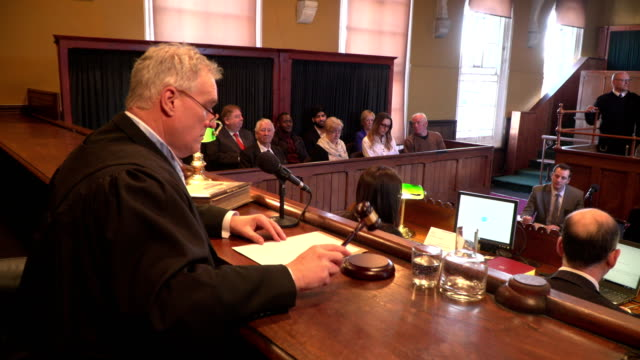Do you want to know how to become judge in New South Wales, Australia? This article is for you! Judges preside over civil and criminal courts of law, and may decide the outcome of some legal cases. Below are some steps on how to become judge in NSW, Australia:
1. Obtain a Law Degree.
The first step of how to become judge in NSW is to successfully obtain a law degree from law schools. In NSW, you can either enrol in any of the following:
- Bachelor of Laws (LLB)
- Juris Doctor (JD)
Bachelor of Laws
This course is an undergraduate double degree. This will require you to attend law school for five to six years of full-time study. You will have to take and pass the Law School Admission Test for you to successfully enrol in this course. If you are a high school leaver or you have no previous tertiary study, the LLB program is suitable for you.
Juris Doctor
The JD program is a postgraduate degree. This consists of three years of full-time study. If you have an undergraduate degree in a non-law discipline or international students with a law degree from an overseas institution, this might be for you.
2. Work as a lawyer for several years to gain extensive legal experience.
An important step on how to become judge is to have work experience. In NSW, legislations provide that a person is eligible to be appointed as a judge of the Supreme Court or District Court if the person is an Australian lawyer of at least 7 years standing (5 years standing in the case of appointments to the Local Court).
Being a judge requires the knowledge and expertise of commonwealth and state law. The high standards of the position are required in order for a judge to apply the law in a fair and just manner.
Moreover, a judge must have a high level of proficiency in the law and its underlying principles, as well as good oral, interpersonal, and written communication skills. To achieve this, one must have the wisdom and skills gained from years of experience.
3. Be appointed by the Supreme Court.
In Australia, constitutions or other legislation provide for appointment of judges by the executive arm of government. Judges of courts that are established under the Commonwealth Constitution are appointed by the Commonwealth executive:
- the High Court,
- the Federal Court and
- the Federal Circuit and Family Court of Australia)
Here’s a summary of the process of how to become judge in New South Wales:
- The Attorney-General makes recommendations to Cabinet, and then advises the State or Federal Governor.
- Superior court appointments are made following consultation with the head of jurisdiction and legal professional bodies.
- There is a different selection process for District Court judges and Local Court magistrates (resulting, in part, from reforms in 2008).
- Vacancies for these positions are advertised, with calls for expressions of interest. In addition, selection panels provide advice to the Attorney-General.
This process may include:
- broad consultation with members of the legal professional community to seek nominations
- advertising
- seeking expressions of interest from suitable candidates, and
- assessment of candidates by advisory panels comprising of eminent individuals who will provide recommendations to the Attorney-General for consideration.

How to Become Judge in the Federal Court of Australia?
To become a judge in the Federal Court, the law establishes the following requirements:
- You must have been a Judge of a prescribed court or of a court of a State; or
- You have been enrolled as a legal practitioner of the High Court or of the Supreme Court of a State or Territory for not less than 5 years; and
- You have appropriate knowledge, skills and experience to deal with the kinds of matters that may come before the Court.
How to Become Judge in the Federal Circuit and Family Court (FCFCOA)?
Indeed, it is only mandatory that the court requires good oral and written communication skills for judges. However there are some additional requirements as well. For Division 1, these are the requirements:
- You are or have been a Judge of another court created by the Parliament or of a court of a State; or
- You are enrolled as a legal practitioner of the High Court, or the Supreme Court of a State or Territory, for at least 5 years; and
- By reason of knowledge, skills, experience and aptitude, you are a suitable person to deal with family law matters, including matters involving family violence.
For Division 2:
- You have been enrolled as a legal practitioner (however described) of the High Court, or a Supreme Court of a State or Territory, for at least 5 years; and
- By reason of knowledge, skills, experience, and aptitude, the person is a suitable person to deal with the kinds of matters that may be expected to come before the person as a Judge of the FCFCOA (Division 2).
- If the kinds of matters that may be expected to come before a person as a Judge of the FCFCOA (Division 2) are family law matters, the person, because of their knowledge, skills, experience, and aptitude, is a suitable person to deal with those matters, including matters involving family violence.
On July 21, 2023, the Attorney-General launched a new appointment process for the Federal Court and the FCFCOA (Divisions 1 and 2). This process included a public call for expressions of interest (EOI) via national advertising, as well as collection via an open expression of interest form. If you have any further enquiries, you can email JudicialAppointments@ag.gov.au.
How to Become Judge in NSW: Personal and Professional Qualities
In NSW, there are other statutory requirements on how to become judge. Judges must have the following qualities:
- outstanding legal expertise and practice law or practise law in a specific state
- conceptual, analytical and organisational skills
- advanced decision-making skills
- research previous cases or previous court decisions relevant
- excellent written communication skills, demonstrating an ability (or capacity to quickly develop the ability) to deliver judgments in a timely manner
- temperament, integrity, impartiality, tact and courtesy
- interpersonal and communication skills
- a genuine commitment to serving the community
- capacity to work effectively under pressure
- a commitment to professional development
- the capacity to inspire respect and confidence, and
- the capacity to work across several areas of the court’s jurisdiction, or where the appointment is to a specialist jurisdiction (for example, Division 1 of the FCFCOA or to the family law jurisdiction of Division 2 of the FCFCOA), demonstrated specialist knowledge and skill in that jurisdiction.

Connect with JB Solicitors
If you want further information about judicial appointments or becoming a lawyer in NSW, you can contact us at JB Solicitors. We can provide legal assistance, representation, and advice about civil and criminal proceedings in various areas of laws.
